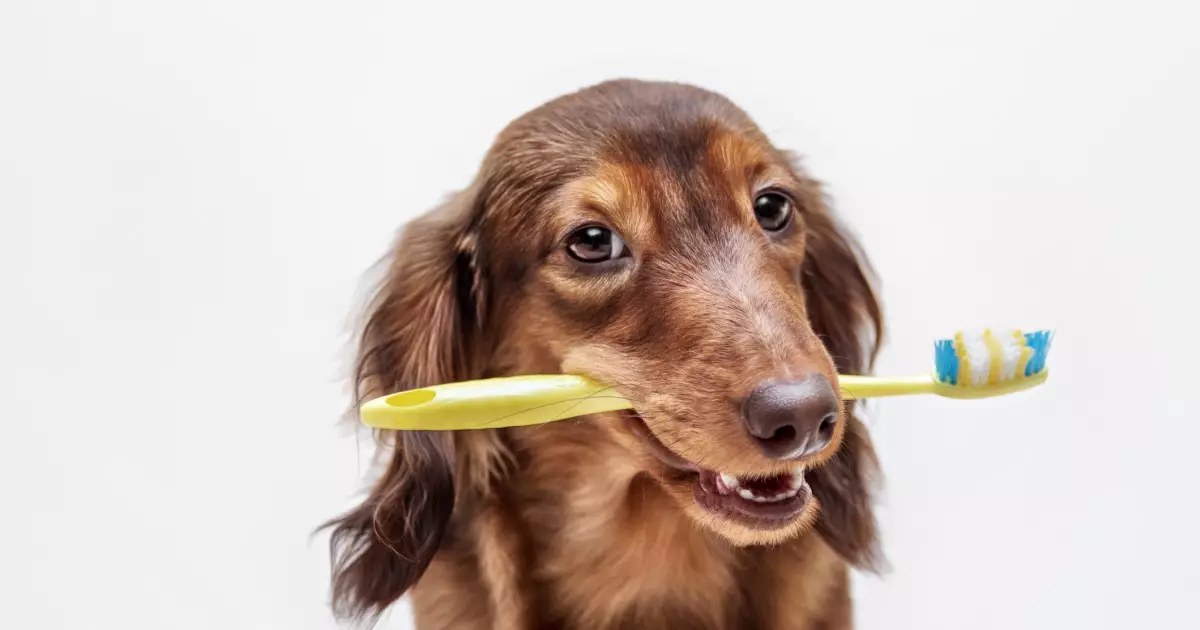Dogs are not only loyal companions; they are family members who depend on us for their well-being. One often overlooked aspect of their health is dental care. Just like humans, our canine friends are susceptible to dental issues, including tartar buildup and gingivitis. Recognizing the importance of oral hygiene can significantly improve a dog’s overall health and longevity.
The Importance of Dental Hygiene in Dogs
Poor dental hygiene is more than just an aesthetic concern; it can lead to severe health complications. Tartar and plaque not only affect a dog’s teeth but can also result in periodontal disease. This condition damages the gums and can consequently lead to tooth loss. In severe cases, if left untreated, bacteria from dental disease can enter the bloodstream, leading to more significant health issues such as infections in the heart, liver, or kidneys. Thus, regular dental care for dogs is essential and should not be neglected by pet owners.
An effective home care routine begins with regular brushing. This can significantly mitigate the buildup of plaque, which is the precursor to tartar. If your dog is not accustomed to having its teeth brushed, it is important to be patient and gradual in your approach. Begin with a finger brush, allowing your dog to get familiar with the sensation of something in their mouth. Once comfortable, use gentle circular motions on their teeth and gums.
After your dog adapts to this process, introduce a dog-specific toothpaste. Human toothpaste often contains ingredients that could be harmful to dogs, so it’s imperative to use products designed for canine oral care. Consistency is vital; aim to brush your dog’s teeth daily or at least several times a week to keep their mouth healthy. Additionally, rewarding your dog after a brushing session with praise or a fun activity reinforces a positive experience.
The Role of Diet in Dental Health
Nutrition plays a significant role in maintaining your dog’s dental health. Consulting with a veterinarian to formulate a diet that supports good oral hygiene is advisable. Avoid feeding your dog sugary human foods, as these can cause dental decay and other health issues. Instead, opt for high-quality dog food and consider adding dental-specific treats or kibble designed to promote dental health.
It’s also essential to monitor what your dog chews. While chewing is beneficial for maintaining clean teeth, not all chew items are safe. For instance, rawhide bones can pose choking hazards and may harm your dog’s digestive system. Similarly, cooked bones can splinter and result in severe internal injuries. Always select chews that are recommended by your vet, and supervise your dog during chew time to ensure their safety.
While at-home care is crucial, it is equally important to schedule professional cleanings. A vet is trained to remove tartar that regular brushing cannot eliminate. Many veterinarians recommend annual or biannual dental cleanings, akin to regular check-ups for humans. Keeping a record of these appointments can help ensure that your dog’s dental hygiene is adequately managed.
Pet owners should also consider the option of non-anesthesia dental cleanings. For dogs sensitive to anesthesia, this can be an appealing choice. However, it’s vital to discuss potential drawbacks with your veterinarian, as these cleanings may not provide the thorough cleaning that your dog deserves.
Signs of Dental Issues in Dogs
Often, pet owners may not recognize that their dogs are suffering from dental problems until they become severe. Regular veterinary visits can help catch any underlying issues early on. However, it’s crucial for pet parents to be vigilant and observant. Look for signs of distress or discomfort, such as difficulty eating, excessive drooling, or bad breath. Additionally, if you notice gum swelling or discoloration, it may indicate periodontal disease needing immediate attention.
Maintaining your dog’s dental health is a multi-faceted approach that involves regular at-home care, a healthy diet, and professional dental cleanings. Incorporating these practices into your routine can lead to a healthier, happier life for your furry companion. Remember that your dog’s teeth are not just for show; they play a critical role in their overall health and well-being. By prioritizing dental care, you ensure that your pet can enjoy a long, active life by your side.


Leave a Reply